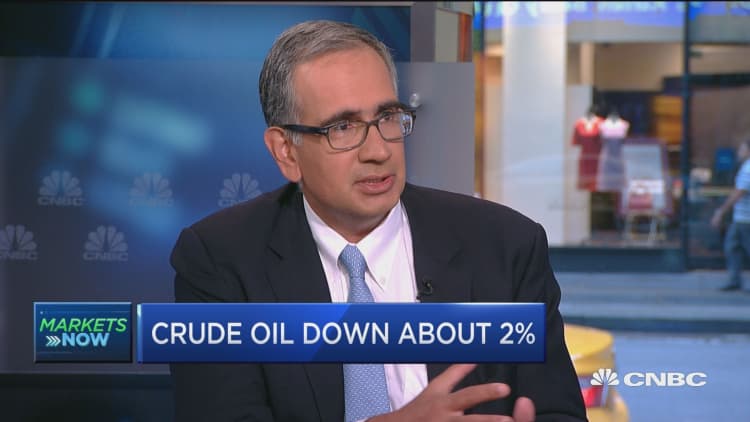
The market landscape shows a majority of investors are confused after the U.K. vote to leave the European Union, but Tom Lee, co-founder of Fundstrat Global Advisors, said Tuesday that this may not be a bad thing.
"I think it shows that maybe the markets are a lot less invested than people think. My takeaway is that there's a lot more cash on the sidelines," Lee told CNBC's "Squawk Box." "That's why we had a huge sell-off and we were able to recover most of that decline."
U.S. stocks have reclaimed more than 90 percent of their post-Brexit losses, and are flirting once again with all-time highs. However, sovereign bond rates across the globe have also fallen sharply since the June 23 vote.
"That's what's scratching heads, because the equities market is telling us that the damage is limited, but then we're left with lower interest rates. I think investors are kind of confused at the moment," Lee said.
On Tuesday, the benchmark U.S. 10-year yield hit an all-time low, while 10-year German bund yields remained in negative territory.
The Brexit vote also slashed market expectations for a Federal Reserve rate hike. According to the CME Group's FedWatch tool, the market does not see rates going up this year.
"I'd say the odds are against it," Richard Bernstein, founder of Richard Bernstein Advisors, said Tuesday in another "Squawk Box" interview. "I don't think they should've done the first one. We were in an environment where inflation expectations were falling."
"On the one hand, you have people complaining that the nominal economy is so [weak], that we're seeing the worst recovery in the post-war era. On the other hand, you have people who want to raise rates. That doesn't make any sense," he said.
This week, albeit shortened because of the Fourth of July holiday, is packed with key economic data releases, including the June jobs report, due Friday.
Major U.S. stock indexes after Brexit
"I think if we get a terrible jobs report it's going to change the narrative completely. We've had one bad jobs report, we've had revisions; that's bad. We get another one, then we really need to start worrying about jobs, which is what's been keeping the economy going thus far," Brad McMillan, chief investment officer at Commonwealth Financial Network, told "Squawk Box" on Tuesday.


